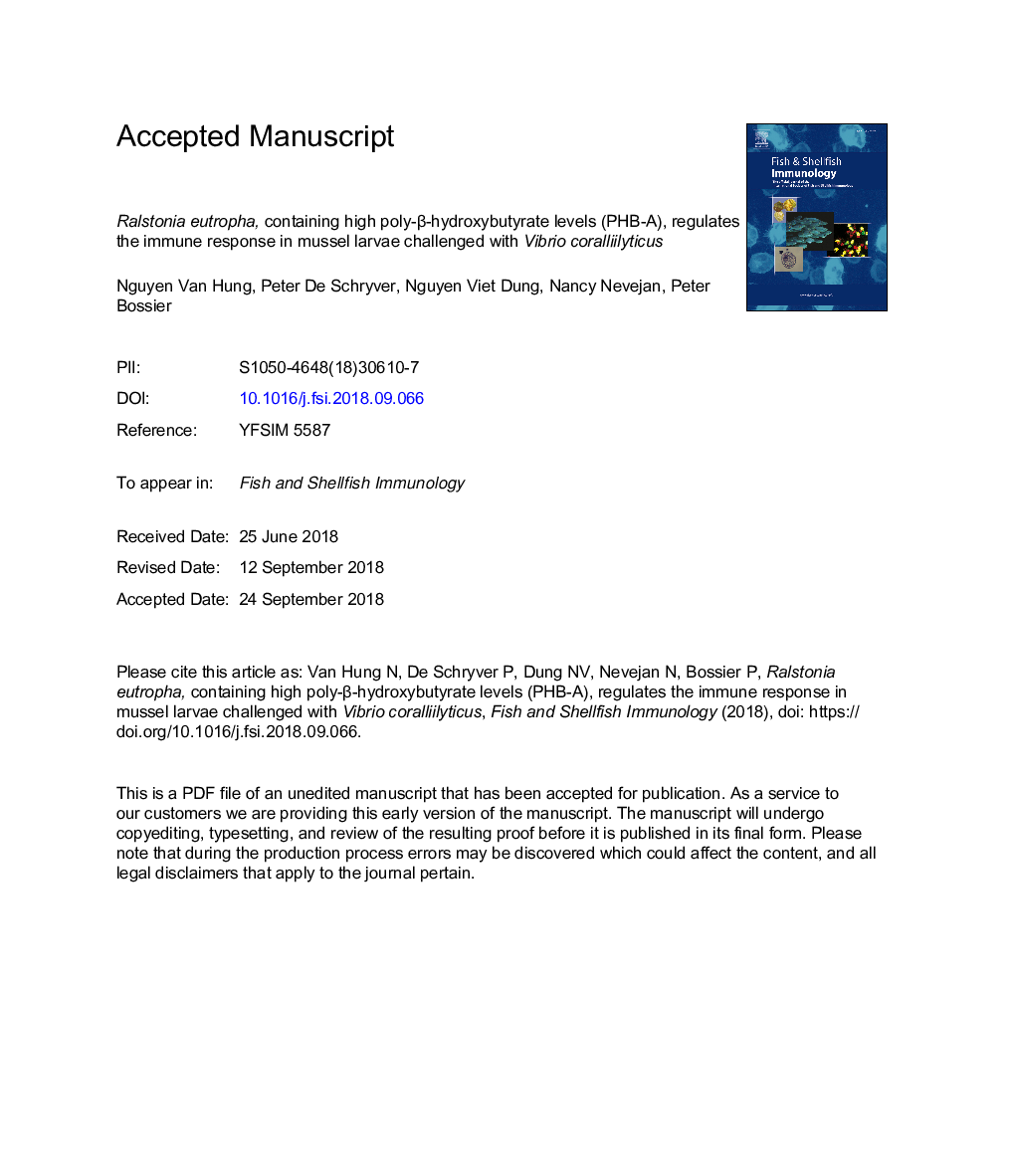| Article ID | Journal | Published Year | Pages | File Type |
|---|---|---|---|---|
| 11019440 | Fish & Shellfish Immunology | 2019 | 30 Pages |
Abstract
Marine invertebrates rely mainly on innate immune mechanisms that include both humoral and cellular responses. Antimicrobial peptides (AMPs), lysozyme and phenoloxidase activity, are important components of the innate immune defense system in marine invertebrates. They provide an immediate and rapid response to invading microorganisms. The impact of amorphous poly-β-hydroxybutyrate (PHB-A) (1â¯mg PHB-A Lâ1) on gene expression of the AMPs mytimycin, mytilinB, defensin and the hydrolytic enzyme lysozyme in infected blue mussel larvae was investigated during “in vivo” challenge tests with Vibrio coralliilyticus (105â¯CFUâ¯mLâ1). RNAs were isolated from mussel larvae tissue, and AMPs were quantified by q-PCR using the 18srRNA gene as a housekeeping gene. Our data demonstrated that AMPs genes had a tendency to be upregulated in challenged mussel larvae, and the strongest expression was observed from 24â¯h post-exposure onwards. The presence of both PHB-A and the pathogen stimulated the APMs gene expression, however no significant differences were noticed between treatments or between exposure time to the pathogen V. coralliilyticus. Looking at the phenoloxidase activity in the infected mussels, it was observed that the addition of PHB-A significantly increased the activity.
Keywords
Related Topics
Life Sciences
Agricultural and Biological Sciences
Aquatic Science
Authors
Nguyen Van Hung, Peter De Schryver, Nguyen Viet Dung, Nancy Nevejan, Peter Bossier,
